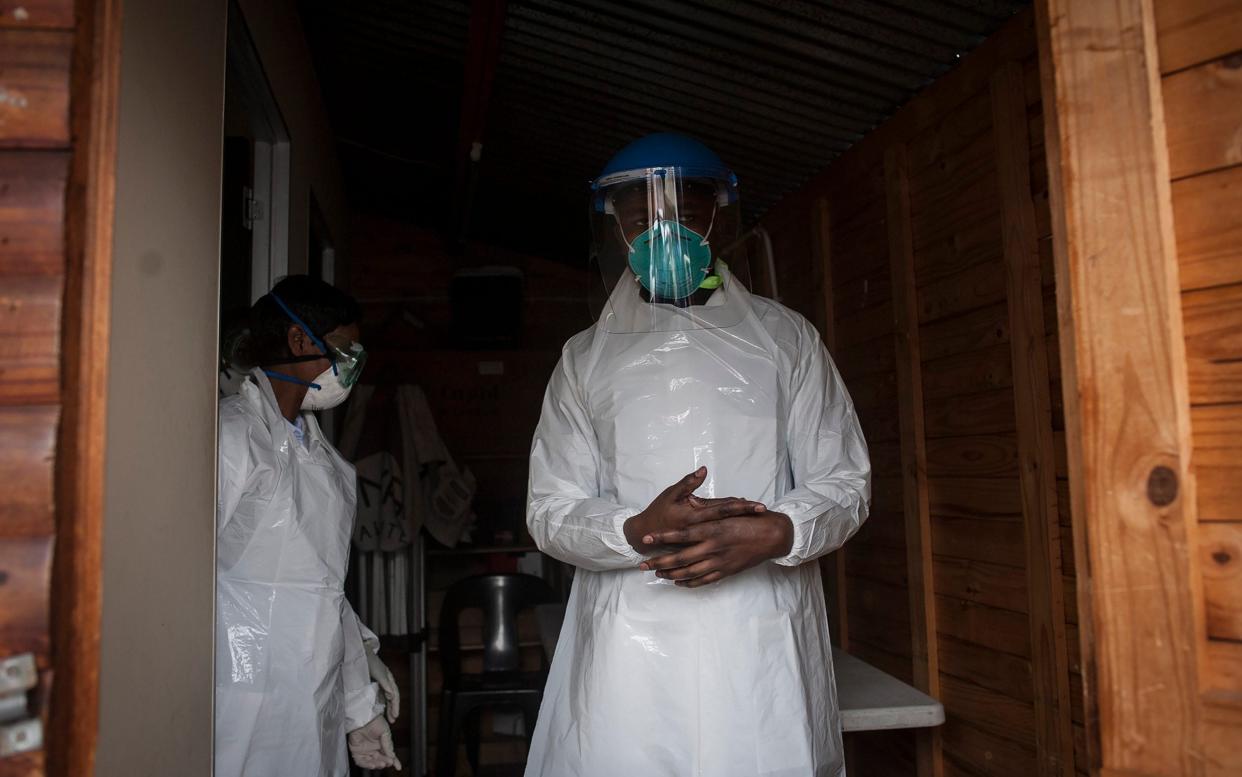Africa faces a Covid-19 catastrophe unless immediate action is taken


Covid-19 is like a drama in which each act eclipses the one before. First, it was Wuhan. Then it moved to Europe. Now it’s accelerating in the United States. But the act that could overshadow all is when Covid-19 takes off in Africa.
Unless extremely fast action is taken, the prospect of an imminent catastrophe in Africa will become real. Current confirmed cases and deaths are still relatively low in Africa, and the continent may be four to six weeks behind Europe’s outbreak. But the trajectory and impact of Covid-19 could be far worse – much harder to contain and causing far more death and damage to communities.
Africa faces daunting challenges. The latest readiness assessments by WHO indicates extremely limited intensive care capacity for treatment of severe Covid-19 cases. Liberia, for example, has four intensive care beds for the entire country. Even those countries with intensive care units lack sufficient ventilators. Many countries have none.
Africa’s relatively weak health systems are already overstretched by the high burden of other infectious diseases. The vast majority of global deaths from HIV and malaria are in Africa, and one in four deaths from TB worldwide are in Africa.
As we watch the escalating global death toll from Covid-19 we should remember that 2.7 million people a year still die from these three diseases. While we’re only at the early stages of understanding the impact of other conditions on Covid-19 prognosis, people living with HIV are immunocompromised, and those affected by tuberculosis may have some pulmonary dysfunction.
However, there are reasons for hope. African countries can leverage their experience in responding to Aids, TB and malaria – as well as Ebola – exploiting the expertise in mass testing, screening and tracing, in strengthening labs and diagnostics capacity and in mobilising communities.
Most important is political will. African leaders such President Cyril Ramaphosa of South Africa, President Paul Kagame of Rwanda and Prime Minister Abiy Ahmed of Ethiopia have already demonstrated their preparedness to act decisively. The Africa Centre for Disease Control and Prevention, led by Dr John Nkengasong, has stepped up to the challenge of coordinating epidemiological data and collaboration across the continent.

In facing Covid-19, Africa has a big advantage in demographics. Only 3 per cent of the population is over 65, versus 20 per cent in the European Union. Since most statistics suggest those over 65 are much more likely to die from Covid-19 than those under this age, Africa’s relative youth may dampen the overall fatality rate.
But the dangers are tremendous. Covid-19 could stop progress towards ending the epidemics of HIV, TB and malaria, and reverse hard-won gains in mortality and infection rates. As overstretched health ministries mobilise to counter the new threat, we’re already seeing health workers, resources and attention diverted.
There’s significant risk of misdiagnosis and confused messaging. For example, some malaria and tuberculosis and Covid-19 symptoms may overlap.
While we’ve been working hard to get those with suspected tuberculosis to come in to clinics for testing and treatment, we probably don’t want those with suspected Covid-19 to do so – instead we want them to self-isolate, or go to designated health facilities equipped to test for Covid-19.
People may also be scared to seek treatment if they fear being contaminated with Covid-19. During the Ebola outbreak in West and Central Africa in 2014-15 and the ongoing outbreak in the Democratic Republic of Congo for example, mothers were reluctant to bring children with fever in to clinics for diagnosis and treatment, and malaria deaths soared.

Another challenge for Africa concerns the feasibility of the pandemic suppression strategies being applied elsewhere. Such “lockdowns”, forcing all but the most essential businesses to close down or operate online, make sense from an epidemiological control perspective, but have massive economic costs, which hit the poorest hardest.
In the advanced economies, governments have committed hundreds of billions of dollars to mitigate the resulting economic stress on households. In Africa, such approaches will hit people even harder. Many live on what they earn each day, and won’t eat if they don’t work.
Working from home via the internet will only be feasible for a tiny fraction. African governments don’t have the financial resources to protect family incomes. As Prime Minister Abiy Ahmed of Ethiopia says: “Fragile and vulnerable at the best of times, African economies are staring at an abyss.”
Across Africa, many people will face an unenviable choice between feeding their families and protecting them from the virus. Unless they can achieve an unprecedented mobilisation of local communities to embrace and enforce social distancing, governments will struggle to suppress transmission of the virus.
The stakes are extraordinarily high. Meeting the challenge of Covid-19 will require decisive action and true leadership from Africa’s leaders at regional and national level, as well as within communities. It will require equally decisive and rapid action from global leaders and global institutions.
Peter Sands is Executive Director of the Global Fund to Fight AIDS, Tuberculosis and Malaria
Protect yourself and your family by learning more about Global Health Security


